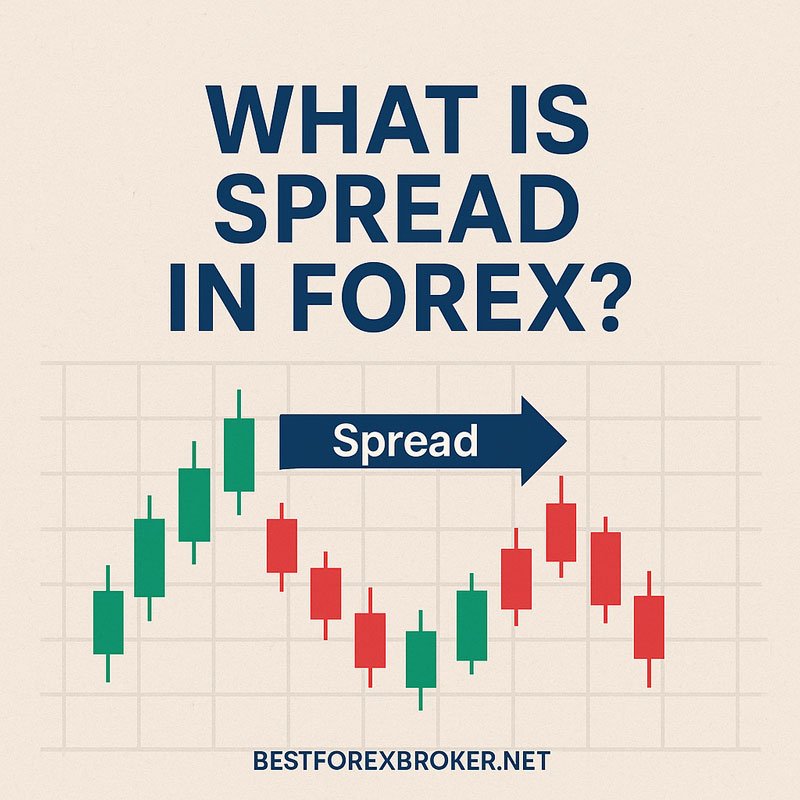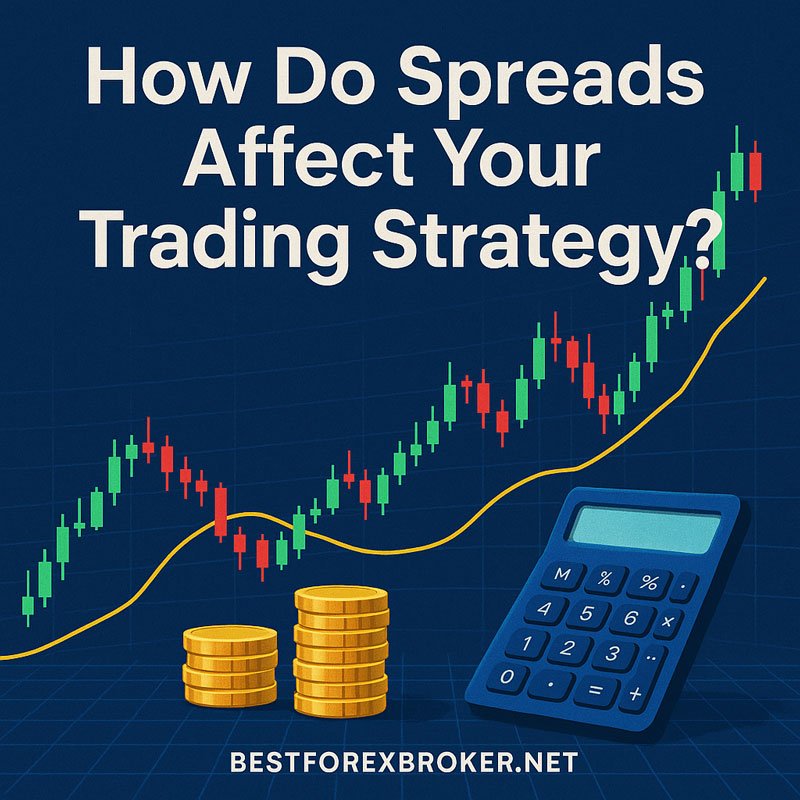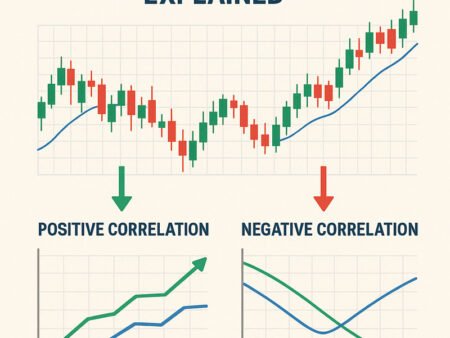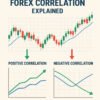If you’re just stepping into the world of forex trading , understanding key terminology is essential to making informed decisions. One such term that every trader must grasp is “spread.” In this article, we’ll answer the question “what is spread in forex?” clearly and concisely, helping you understand how spreads work, why they matter, and how they impact your trading performance.
The Role of Spread in Forex Trading
Forex trading involves buying and selling currency pairs, and while many traders focus on price movements and strategies, few realize how much transaction costs like spreads affect their profits. Unlike stock markets where commissions are often transparent, in forex, the spread acts as a hidden cost that can significantly influence your bottom line—especially if you trade frequently or use short-term strategies like scalping.
So, what is spread in forex , and why should new traders care about it?
What Is Spread in Forex?

✅ Definition:
The spread in forex refers to the difference between the bid price (the price at which you can sell a currency pair) and the ask price (the price at which you can buy it).
This difference represents the cost of the trade —essentially, how much the broker earns from your transaction.
🔍 Key Takeaway:
The spread is measured in pips , the smallest unit of price movement in forex trading.
💡 Example:
Let’s say the EUR/USD pair has the following quote:
- Bid : 1.1050
- Ask : 1.1052
The difference between these two prices is 2 pips , so the spread is 2 pips .
When you open a trade, you start with a small loss equal to the spread. For example, if you buy EUR/USD at 1.1052, the price must rise to at least 1.1052 + 2 pips = 1.1054 before you break even.
Why Is the Spread Important in Forex Trading?
Understanding spreads is crucial because they directly affect your trading costs and profitability. Here’s why:
📌 Transaction Cost:
Every time you place a trade, the spread is effectively the fee you pay to the broker . Lower spreads mean lower costs per trade.
📌 Profitability Impact:
For short-term traders like scalpers, who make dozens of trades per day, tight spreads can be the difference between profit and loss.
📌 Market Conditions Reflection:
Spreads also reflect market conditions. During high volatility or low liquidity, spreads tend to widen, increasing your entry cost.
Types of Spreads in Forex
There are two main types of spreads you’ll encounter in forex trading:
🟢 Fixed Spreads
🔹 What It Is:
A fixed spread remains constant regardless of market conditions.
✅ Pros:
- Predictable trading costs
- Ideal for beginners and scalpers
❌ Cons:
- May include hidden costs during volatile times
- Brokers may re-quote orders
🔵 Variable (Floating) Spreads
🔹 What It Is:
A variable spread changes based on real-time market conditions like liquidity and volatility.
✅ Pros:
- Generally tighter during normal market hours
- Reflects true market pricing
❌ Cons:
- Can widen dramatically during news events or economic releases
- Less predictable for budgeting trade costs
📝 Pro Tip: Choose fixed spreads if you prefer predictability; opt for variable spreads if you’re comfortable with fluctuating costs and trade during stable market hours.
How Are Spreads Determined?
Several factors influence the size of the spread offered by your broker:
📈 Market Volatility:
During major news events or economic data releases (e.g., interest rate decisions, non-farm payrolls), spreads can increase significantly due to rapid price movements.
📊 Liquidity:
Major currency pairs like EUR/USD , GBP/USD , and USD/JPY usually have tighter spreads because they are highly liquid. Exotic pairs, such as USD/TRY or AUD/NZD , often have wider spreads due to lower demand.
🕒 Time of Day:
Trading during peak sessions (London, New York) generally offers better liquidity and narrower spreads than off-peak hours.
🏦 Broker Type:
- Market Makers typically offer fixed spreads.
- ECN (Electronic Communication Network) brokers provide variable spreads but may charge a commission per trade.
How Do Spreads Affect Your Trading Strategy?

Your trading style determines how much spreads will affect your overall performance.
📉 Scalping:
Scalpers aim to capture tiny price movements, often holding positions for seconds or minutes. Tight spreads are essential here because even a 1-pip gain can be wiped out by a wide spread.
📈 Day Trading:
Day traders benefit from consistent spreads throughout the day. They often avoid trading during high-impact news events when spreads can widen unpredictably.
📅 Swing Trading:
Swing traders hold positions for days or weeks. Since they focus on larger price moves, spreads have less relative impact compared to scalpers or day traders.
📝 Strategy Tip: Always check average spreads for your preferred pairs and choose a broker that aligns with your trading style.
Real-Life Example: Spread in Action
Let’s walk through a practical example to see how spreads work in real trading.
🧪 Trade Setup:
You decide to trade GBP/USD using a standard lot (100,000 units).
- Ask Price : 1.2850
- Bid Price : 1.2848
- Spread : 2 pips
You open a buy position at 1.2850.
To break even, GBP/USD needs to move up to 1.2852 . Any movement beyond that is pure profit (or loss if it goes down).
Now imagine you’re using a broker with a 5-pip spread instead. You’d need the price to reach 1.2855 before seeing any profit. That’s a significant difference!
How to Find Low Spread Brokers
Trade with a trusted broker today
See for yourself why Exness is the broker of choice for over 1 million traders and 100,000 partners.
Finding a reliable broker with competitive spreads is key to maximizing your returns. Here’s how to do it:
🔍 Compare Brokers:
Use comparison websites or visit brokers’ official sites to compare average spreads for major pairs.
📋 Look for Average Spread Tables:
Most reputable brokers publish average spreads for different account types (Standard, ECN, etc.).
⚠️ Watch Out for Hidden Fees:
Some brokers advertise ultra-low spreads but charge commissions or apply slippage during volatile periods.
✅ Recommended Pairs for Tight Spreads:
Stick to major currency pairs like:
- EUR/USD
- GBP/USD
- USD/JPY
- AUD/USD
These pairs are the most liquid and usually have the lowest spreads.
Conclusion
In summary, the spread in forex is the difference between the bid and ask price of a currency pair. It serves as the primary transaction cost in forex trading and plays a critical role in determining your profitability—especially for frequent traders.
By understanding how spreads work, what affects them, and how to choose a broker with favorable spread conditions, you can reduce trading costs and improve your long-term success in the forex market.
If you found this article helpful, feel free to share it with fellow traders or explore our other guides below.
If you’re new to forex, grasping concepts like spreads, pips, and leverage is vital to building a strong foundation. As you continue learning, always keep an eye on your trading costs —because over time, even small differences in spreads can add up to substantial savings or losses.
Category: https://bestforexbroker.net/category/forex-basic/
Frequently Asked Questions (FAQ)
Is a lower spread always better?
Yes, generally speaking , lower spreads reduce your trading costs. However, some brokers with ultra-low spreads may compensate with higher commissions or poor execution quality.
Can spreads change during news events?
Yes, spreads often widen significantly during high-impact news releases or geopolitical events due to increased volatility and reduced liquidity.
What is a normal spread in forex?
For major pairs like EUR/USD:
Fixed spreads : 1–3 pips
Variable spreads : 0.5–2 pips under normal conditions
Exotic pairs may have spreads of 5 pips or more
How can I check my broker’s average spread?
Log into your trading platform, look at the Market Watch window , or check the broker’s website for published spreads.
















